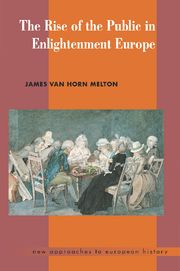Conclusion
Published online by Cambridge University Press: 05 June 2012
Summary
Like other institutions of the Enlightenment public sphere, freemasonry symbolized an emerging civil society that was increasingly coming to view itself as autonomous from the state. At the same time, the vicissitudes of eighteenth-century freemasonry show that this nascent civil society was politically protean and not inherently liberal or oppositional. Liberal and democratic movements were to be a part, not the whole, of the civil society spawned by the Enlightenment public sphere. Nineteenth-century civil society would give birth to liberal, democratic, even socialist and feminist movements and associations, but it also produced nationalist, racialist, and militaristic ones, foreshadowings of which were already visible in the precociously developed political public sphere of eighteenth-century England. By the end of the nineteenth century, the ambiguous offspring of civil society were much apparent. From, say, Imperial Germany, where right-wing populist associations like the Pan-German League and the Navy League produced a steady stream of chauvinistic and imperialistic propaganda, to the anti-Semitic diatribes of anti-Dreyfus newspapers and associations under the French Third Republic, it was obvious that the public sphere of nineteenth-century civil society could take forms that were anything but liberal.
Curiously, Habermas himself had little to say about nationalism and its role in the structural transformation of the public sphere. This silence is all the more paradoxical owing to the fateful historical role of nationalism in his native Germany, and Habermas has in fact distinguished himself as a vocal advocate of postwar Germany's need to come to terms with the darker side of its nationalist past.
- Type
- Chapter
- Information
- The Rise of the Public in Enlightenment Europe , pp. 273 - 276Publisher: Cambridge University PressPrint publication year: 2001



